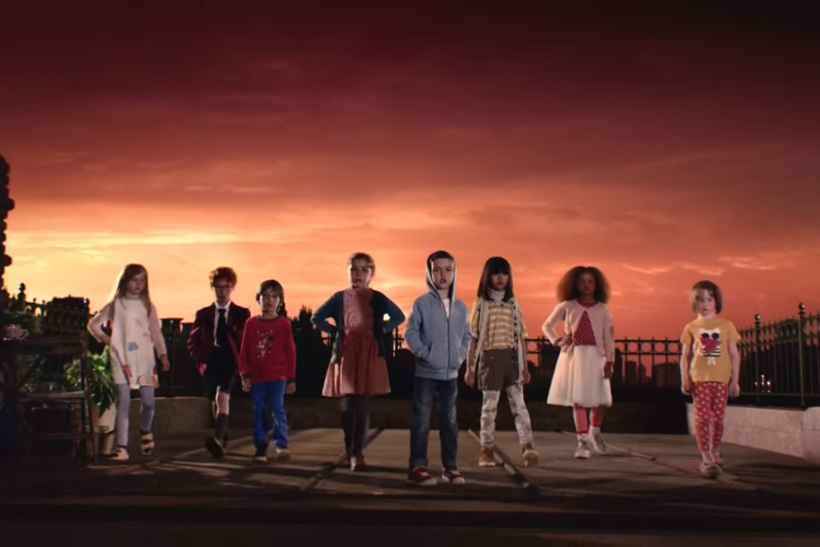Please comment with your email so I can add you as an editor: https://docs.google.com/document/d/1SB9h-rzstTnxl11FTdJRav22SsReK107Yu7jNDMIkig/edit?usp=sharing
Category Archives: Digital Eugenics
A new approach to consider. What kind of civilisation is the digital utopia moving towards?
Collaboration doc (please comment with your email so I can add you as an editor): https://docs.google.com/document/d/1SB9h-rzstTnxl11FTdJRav22SsReK107Yu7jNDMIkig/edit?usp=sharing
Introduction

Eugenics here is, at this very moment in our rhizome, purely rhetorical. This is not to evoke images of the Third Reich, or to provoke melodramatic, unfocused, and irrational discourse. What we are focusing on is a shift towards a ‘new type of human’—cultivated and engendered by the incision of the digital into the natural world. What traits are auspicious for integration into this emerging new world (for which I believe there is no ambiguity toward our inevitable destination), and who is permitted entry? Are the youth being moulded by forces outside of the usual worldly institutions (such as schools and parents) in an unprecedentedly auxiliary manner? What are the governing forces (concealed or not) in the digital world? We are clearly on a tangent from the ideals of John Perry Barlow, who envisioned cyberspace as that which is free of government, control, and all forms of regulation, allowing a vacuum for the world brain to proliferate (see: https://www.youtube.com/watch?v=83udLWOpugI and https://www.eff.org/cyberspace-independence). Barlow could not have legislated for the giant technological corporations that are so prevalent in our world, and which are viciously competing for dominance, when he framed this utopia. Is this a true realisation of eugenicist Huxley’s ‘transhuman’?
Derrida: written text as ‘pharmakon’
Derrida offers an exposition of the text (contrasted with the immediacy of the spoken) as pharmakon, in referencing a Platonic encounter between Socrates and Phaedrus. There is the creative freedom in the written form that allows for unlimited refinement to augment the spellbinding and beguiling properties of the pharmakon. It is apt to differentiate the mechanics of written versus spoken discourse—despite the obvious—in this specific Platonic context: the written and the true are incompatible and diametrically opposed. The falsehood here, the written text, is a distancing device—an obstruction of expression for the immediate subject, even a distortion of consciousness itself, as the writer discourses ‘what he does not speak, what he would never say and, in truth, would probably never even think’ (Derrida, 2004:73). The archetypal author of text discourse (the sophist in this particular context) is classified as ‘the man of non-presence and of non-truth’ (73). What is interesting when considering the prominent modes of communication and information production today is this Platonic notion of writing as a synonym of deception and preternatural communication. In particular, the quality of non-presence is striking, as it is this mode which is dominant in our communication-sphere today, and to ignore its significance and insidiousness since communications tech grew in prevalence and reached the intensity of today with the digital would be a mistake. What Derrida’s account does is provide a philosophically based explanation for the type of unsavoury communication which has become dominant online: the “trolls”; the lack of decorum; the harrowing lack of responsibility, both social and personal; and the broader loss of empathy—resulting in a social space inhabited by faceless typists closely resembling schizoid sufferers.
Derrida, J. (2004) Dissemination. Reprint, London: Bloomsbury Academic (2013)
The role of youth


Why is there a certain cultural malaise concerning the youth? There are many obvious and tacit approaches to this: such as their innate vulnerability, delicateness, and immeasurable preciousness to those responsible for their nurturing. But there are evident fears that are kept suppressed for propriety, only to be transposed to the domain of horror fiction as a somewhat paradoxical means of acknowledgement and reassurance (horror is fanciful—not to be taken seriously)—or even pharmakon. Bygone eras have made the vexed issue of youth known, for example, baptism virtually conceals the ceremonial tradition that perceived a sense of inherent malignity in the child. The washing ritual by a priest betrays paradigmatic associations of a corrupt soul that must be cleansed for eligibility to enter God’s kingdom. Dig deep into the foundational roots of society, and you will see that children were seen as fallen in nature and tainted by original sin.